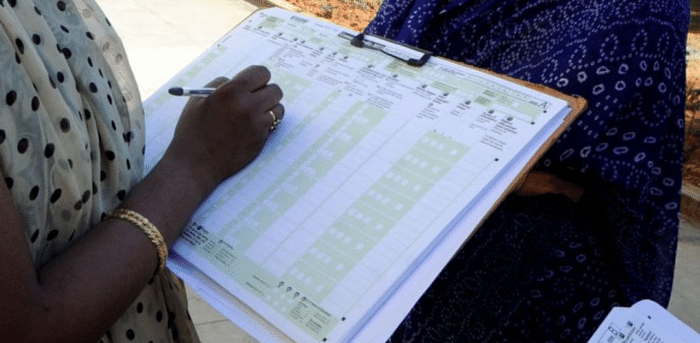
More than three decades after the Mandal Commission recommendations granting 27 per cent quota in government service and public sector jobs were implemented, the issue of caste-based reservations has stirred up the political discourse yet again.
Politicians across party lines - principally opposition, but some NDA allies as well - have expressed their demand for a census that takes into account India's caste groups.
What is a census? When was the last caste census conducted?
A census is a process where a body (typically a government) collects and catalogues a population's data. The data may include factors such as family size, religion of family members, their professions, etc.
Read | A riddle called caste census
Every census conducted in India after Independence has enumerated the population of the SCs and STs, besides publishing details about religions, languages and socio-economic status of citizens. However, the government has not gathered details about the OBCs, who continue to be clubbed with the general category.
The last time an OBC census was conducted in India was during the British Raj in 1931, when it was found that they comprised 52 per cent of the population. India had 25,68,59,787 people in 1931, which put the OBC population at 13,35,67,089. The Congress-led UPA-II had conducted a separate socio-economic and caste census (SECC) in 2011, but refrained from publishing the details amid claim of data being riddled with inaccuracies.
Who is batting for the caste census? What is the government's response?
An array of Opposition parties including SP, BSP RJD, AAP LJD, NCP have backed the move, but they are not the only ones. At least three NDA allies - JD(U) led by Nitish Kumar, RPI(A) led by Ramdas Athawale, and Apna Dal led by Anupriya Patel have pitched for it.
Apart from these, West Bengal CM Mamata Banerjee has said that "she will accept a nationwide caste-based census if all political parties reach a consensus on the matter".
The central government, on the other hand, has so far been ruling it out, even on the the floor of the Parliament. "The state governments of Maharashtra and Odisha have requested to collect caste details in the forthcoming census. The government of India has decided, as a matter of policy, not to enumerate caste-wise population other than SCs and STs in census," Union Minister of State for Home Nityanand Rai said in Lok Sabha.
RSS is also opposed to a caste-based census, reasoning that it would run counter to the vision of Babasaheb Ambedkar of a casteless society and weaken efforts to achieve social harmony.
Who will the caste census impact?
Those in favour of the caste-based census claim that it would help gather robust data on which communities have benefitted from the reservation policies so far and also present evidence on those who have been left out.
Additionally, the census could also throw some light on educational and economic profile of various caste groups and help the government plan its affirmative action initiatives in a better way.
However, naysayers claim that the demand, if acceded to, could open up a Pandora’s Box as the government will have to do a tough job of matching the aspiration for adequate representation of various caste groups.
Politically, if the caste-census shows higher number of different castes, the regional parties can step up campaigns for greater representation as part of the affirmative action, triggering a fresh round of mobilisation on caste lines.